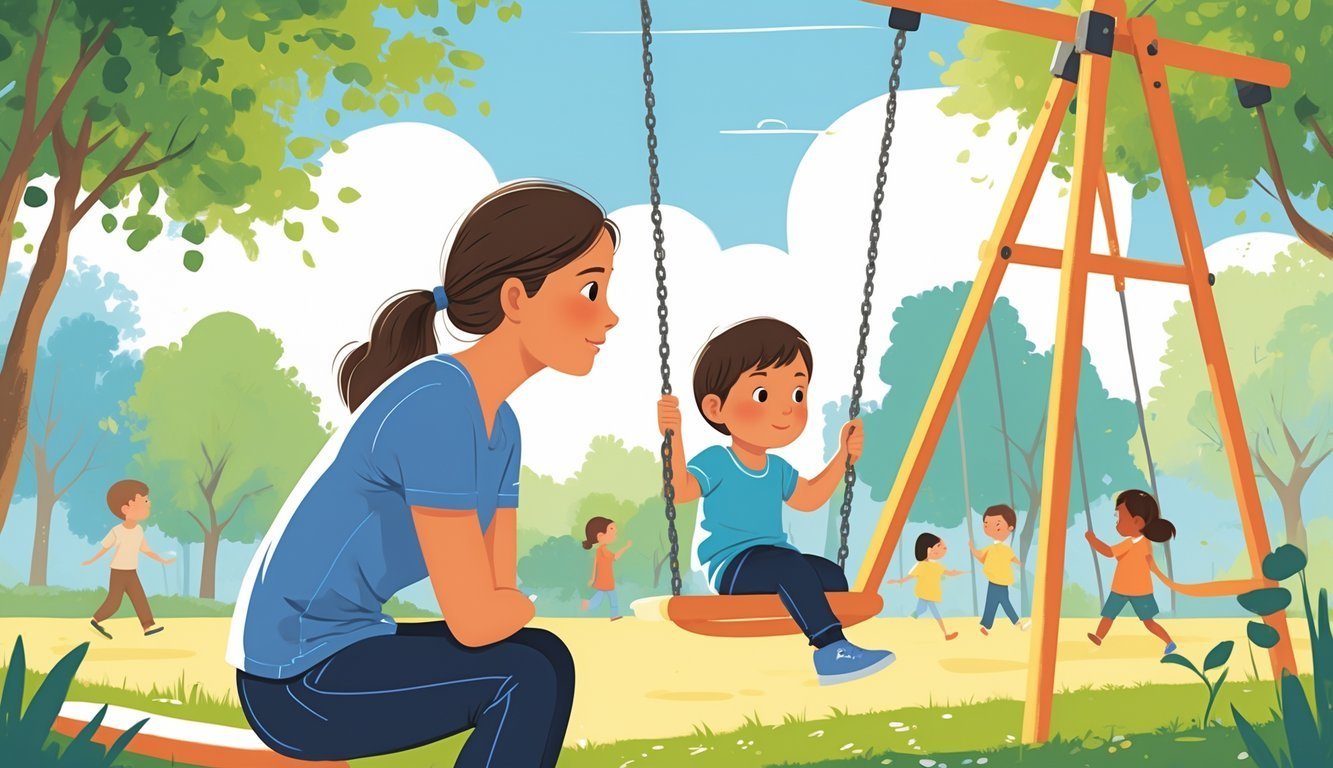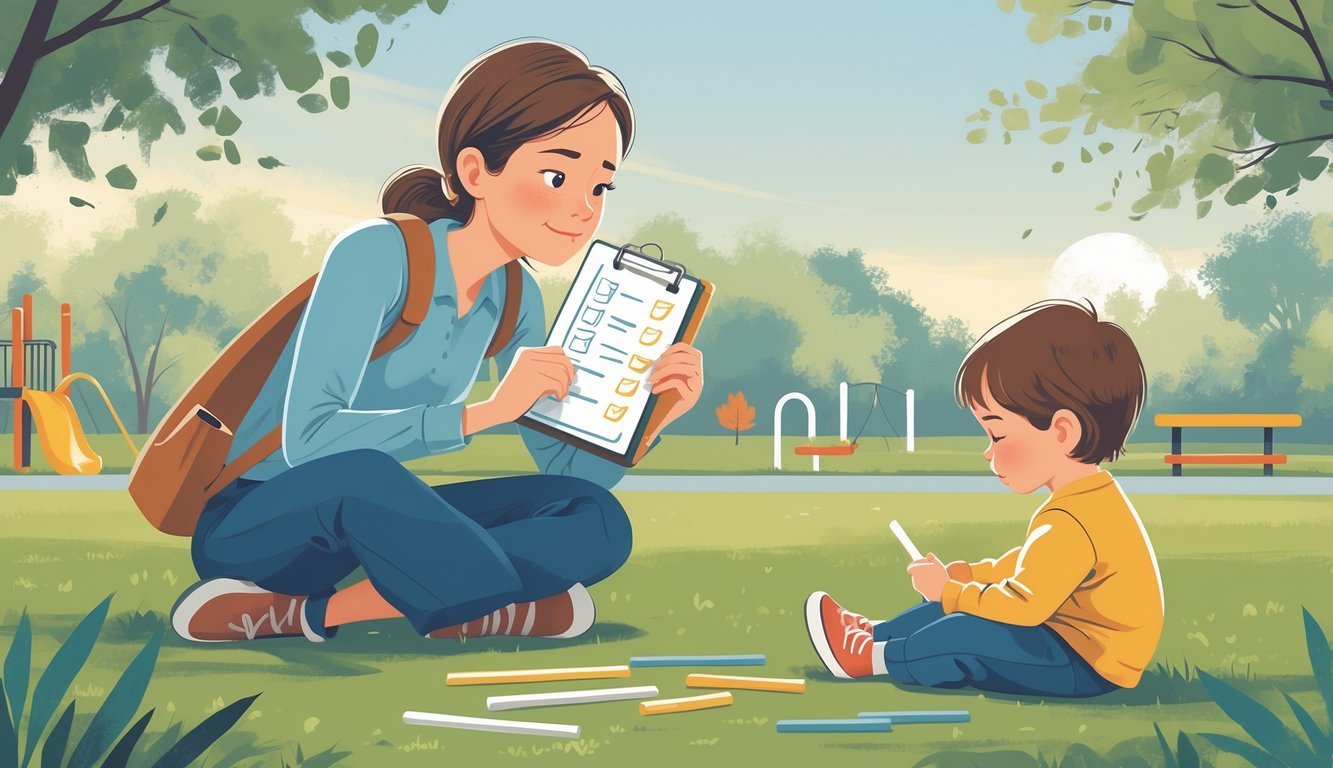PsychNewsDaily Publishers
100 Summit Drive
Burlington, MA, 01803
Telephone: (320) 349-2484
PsychNewsDaily Publishers
100 Summit Drive
Burlington, MA, 01803
Telephone: (320) 349-2484
Helicopter parenting often stems from perfectionism, leading to increased anxiety, reduced autonomy, and hindered decision-making skills in children as parents overly control their experiences.

Some parents just want the best for their kids. But if you’re a perfectionist, that wish can easily slip into helicopter parenting.
Perfectionists tend to watch over their kids more closely, hoping everything goes just right. You might step in too often, making it tough for your child to learn things on their own.
When you expect perfection, it’s natural to feel anxious about your child’s choices or mistakes. That anxiety can turn into controlling behavior, all in an effort to dodge anything less than a perfect outcome.
If you’re always checking on your child or fixing their problems, your own need for control and high standards might be driving it. Noticing this pattern can help you start finding a better balance for you and your family.

You might spot a parent trying to control every bit of their child’s success, and often, perfectionism sits at the root. This urge for control usually comes from strong expectations and a need for things to go just right.
Understanding what’s happening in your mind helps explain why you—or other parents—end up hovering so much.
Perfectionism means you want everything flawless. You set high standards for yourself and for your kids.
You probably feel pressure to avoid mistakes, no matter what.
Helicopter parenting is when you watch and control your child’s life closely. Instead of letting them figure things out, you jump in to solve problems or make decisions.
When perfectionism and helicopter parenting mix, you get involved in every detail because you want your child’s success to reflect your own efforts. You worry about what could go wrong and try to fix things before they even happen.
If you’re a perfectionist, your child’s achievements might feel like your own. That makes it tempting to do whatever you can to protect them from mistakes or failure.
You might believe that if your child falls short, it reflects badly on you. That fear can make you anxious and push you to step in—even when it’s not really needed.
These high expectations can lead you to micromanage your child’s activities, choices, or even emotions. You want everything to be “just right” so your child avoids criticism or setbacks.
When you step in all the time, your child misses out on chances to develop autonomy—that basic ability to make decisions for themselves.
If they never get to try and fail, their confidence takes a hit.
This can mess with their self-efficacy, or their belief that they can handle challenges. If you’re always solving things for them, they don’t pick up the skills they need.
Over time, your child may feel less independent and get anxious when new situations pop up. Giving them space to try, and even fail, helps them learn and grow.

Perfectionist parents who hover too much can bring real challenges for their families and kids. Mental health, closeness, independence, and even how you see success can all take a hit.
These effects don’t just stop in childhood—they often stick around as you become a young adult.
If your parents are perfectionists and tend to hover, you might feel extra pressure to be perfect yourself. That can make you anxious or stressed about not living up to those standards.
Studies have found that kids with over-involved parents often report more anxiety and depression. They might fear failure or feel like they’re never good enough.
This pressure can chip away at your self-esteem and mood over time.
Your mental health matters. Setting limits on how much your parents get involved can help ease stress and support your emotional well-being.
When parents get too involved, setting boundaries gets tricky. You might notice your parents stepping into decisions about school, friends, or your life plans more than you’d like.
Healthy boundaries mean your parents support you, but still let you make mistakes and learn. If they can’t do that, you could feel trapped or start doubting your ability to handle things by yourself.
Both you and your parents need to respect those limits. Honest conversations help make sure their support doesn’t start to feel like control.
A lot of millennials and college students who grew up with helicopter parents struggle with independence. You might still rely on your parents for decisions or tasks that adults usually handle.
This can slow down your growth and make you less confident.
Adult children with perfectionist parents often say they feel less prepared for real-life challenges. They might even feel guilty for wanting more freedom.
Noticing how your parents’ style shapes your life can help you find your own way and build the skills you need to handle responsibility.
Social media just adds to the pressure to be perfect, especially if your parents are already perfectionists. You might compare your life to others and feel judged for not measuring up.
Perfectionist parents sometimes use social media to compare your achievements with other kids, which can ramp up stress at home.
Learning to balance social media and manage expectations can protect your mental health. Remember, what you see online is usually just the highlights, not the whole story.

Knowing how your parenting style shapes your child’s growth helps you make better choices. It also reminds you to balance caring with letting your child figure things out.
Helicopter parenting can make your child more anxious or less confident. They might struggle with challenges because you usually step in to solve things for them.
Try focusing on effort instead of perfect results. Let your child make mistakes and learn from them.
Praise their progress and help them build confidence without expecting everything to be flawless.
Helicopter parents hover and try to control situations. Hummingbird parents step back, offering support from a distance while letting kids handle things themselves.
If you’re always guiding or fixing things, your child might struggle to make choices alone. This can slow down how they learn to be independent and trust their own judgment.
You might notice yourself stepping in to fix problems your child could handle alone. Or maybe you control a lot of their life—schoolwork, friendships, or hobbies.
Kids with helicopter parents often miss out on learning how to handle stress themselves. When you jump in to fix their problems, it gets harder for them to deal with tough situations alone.